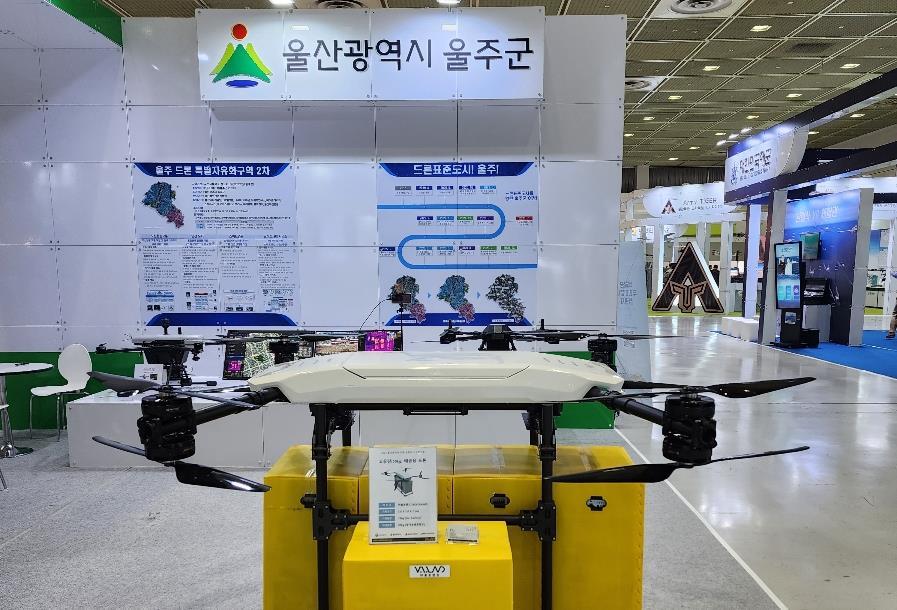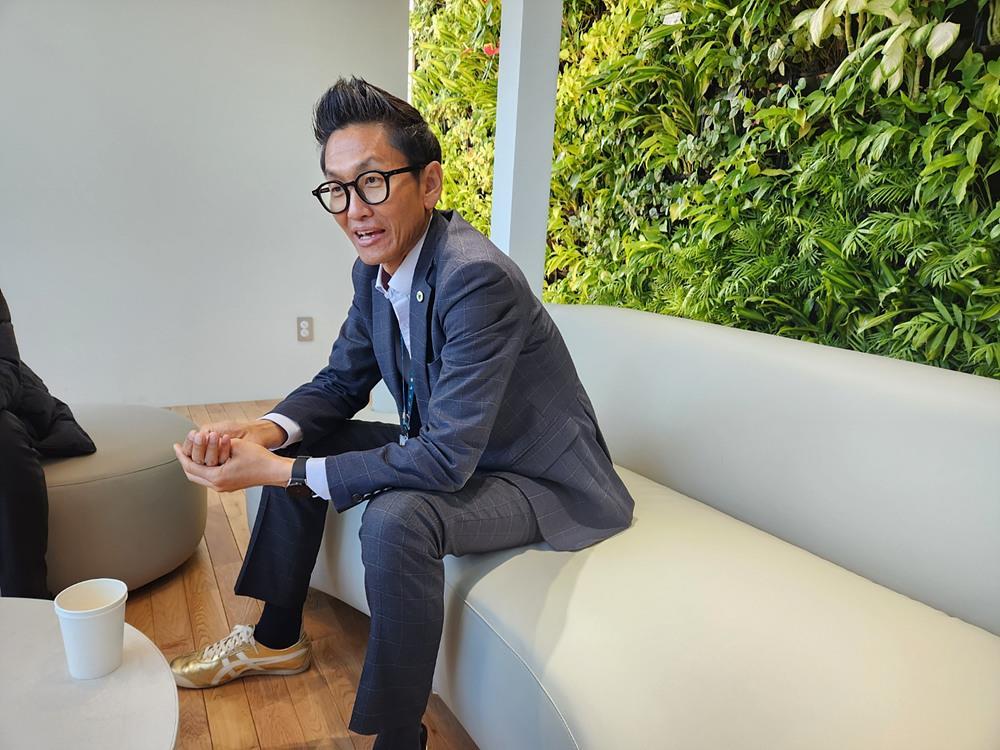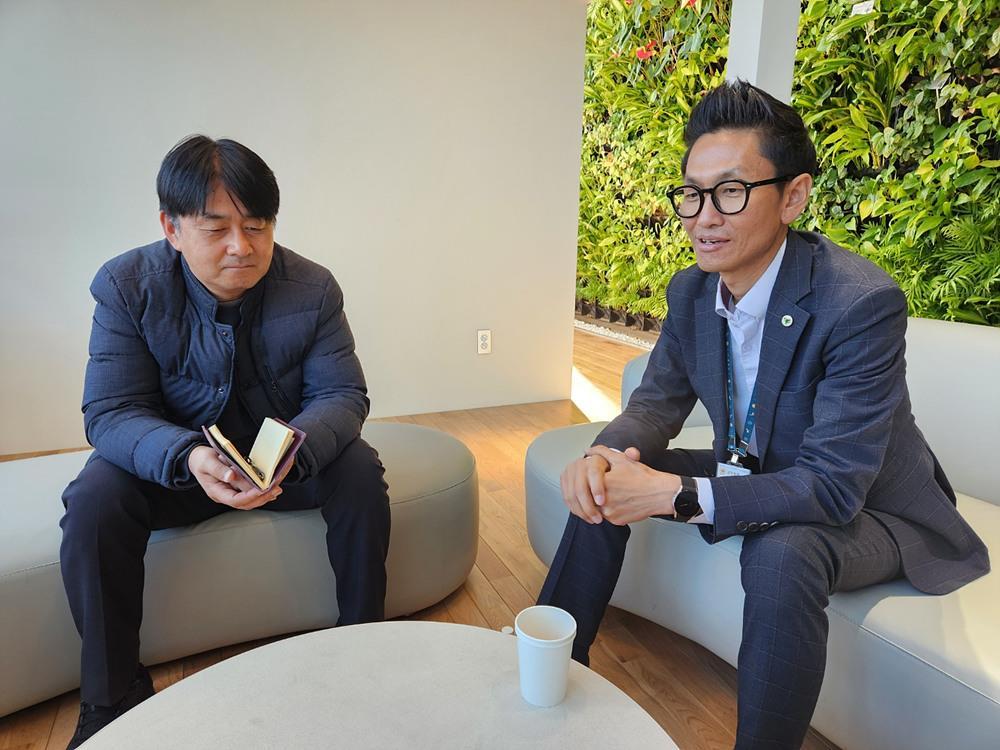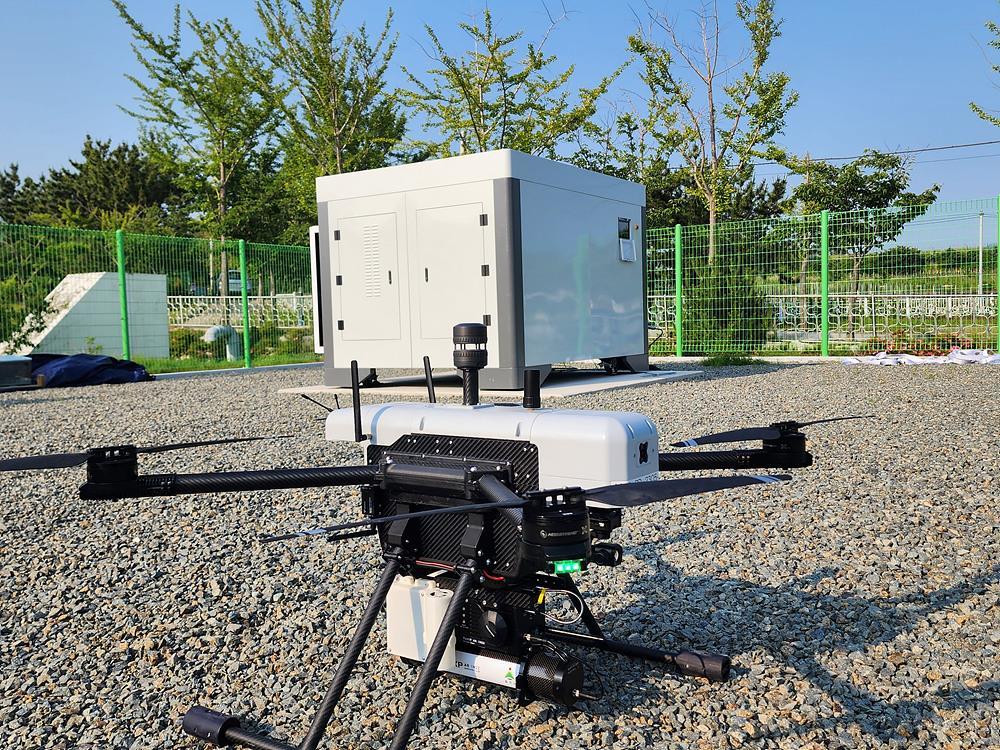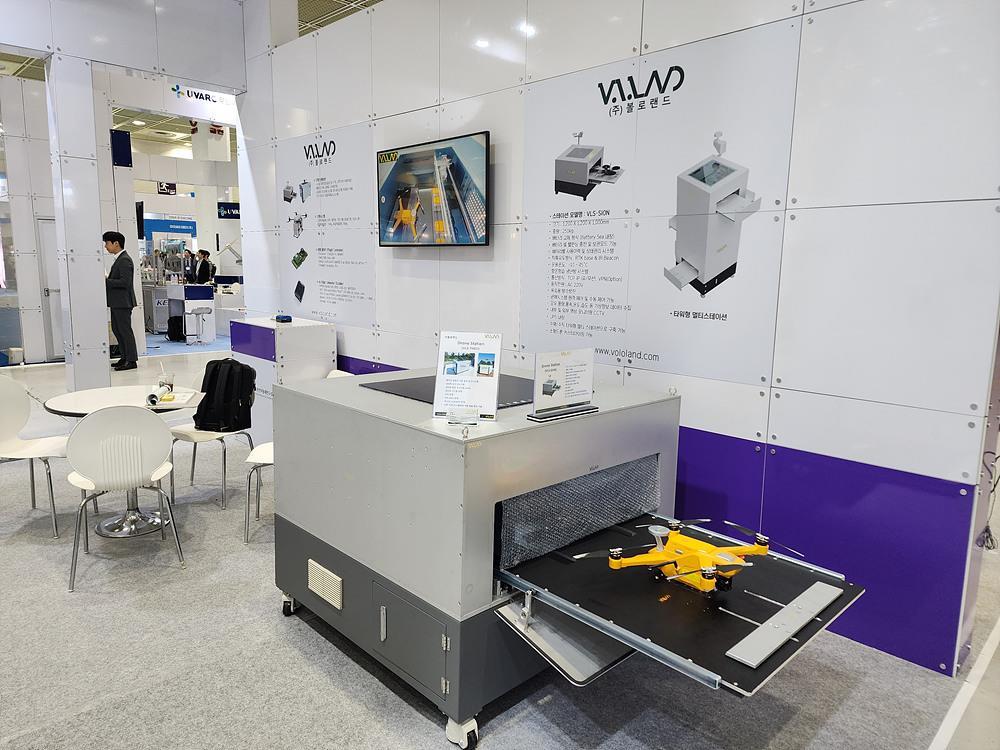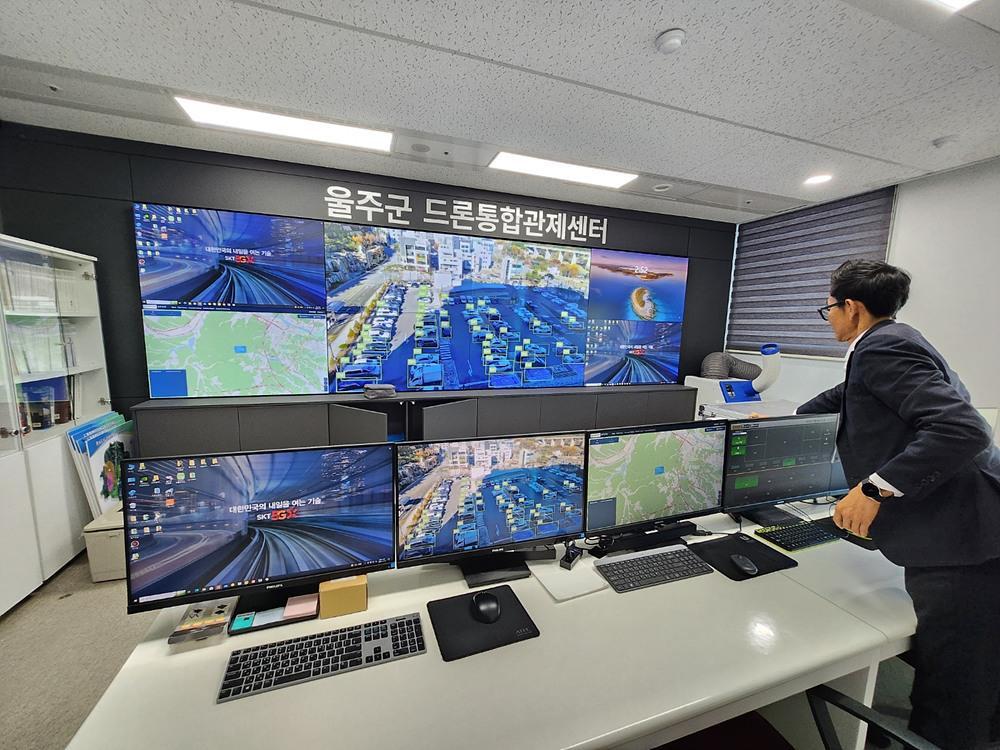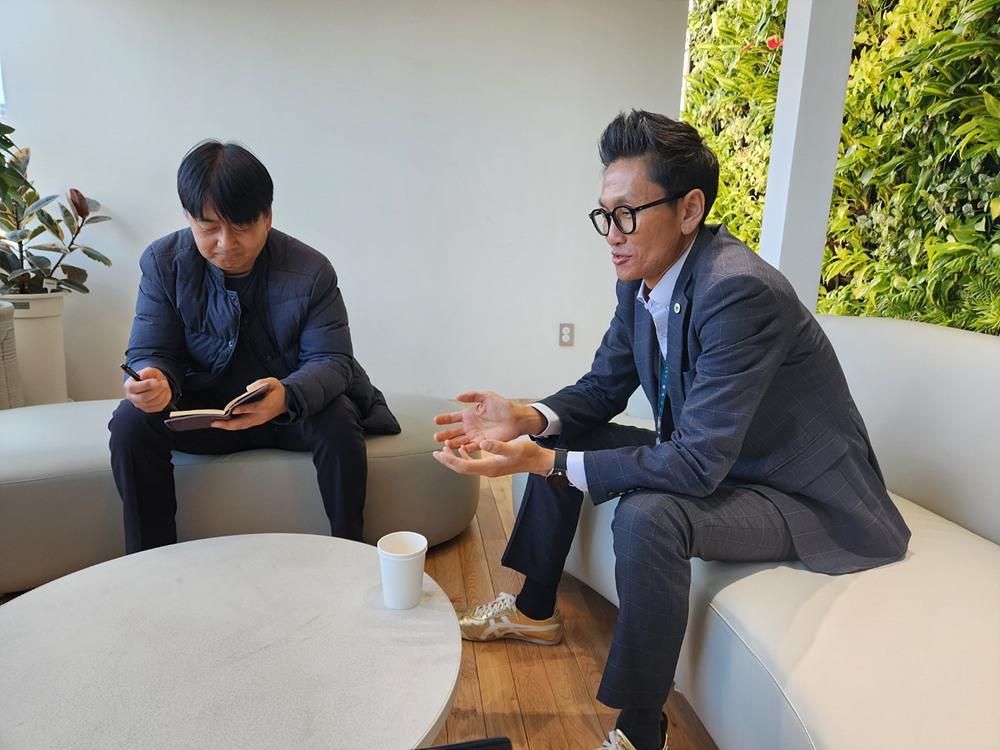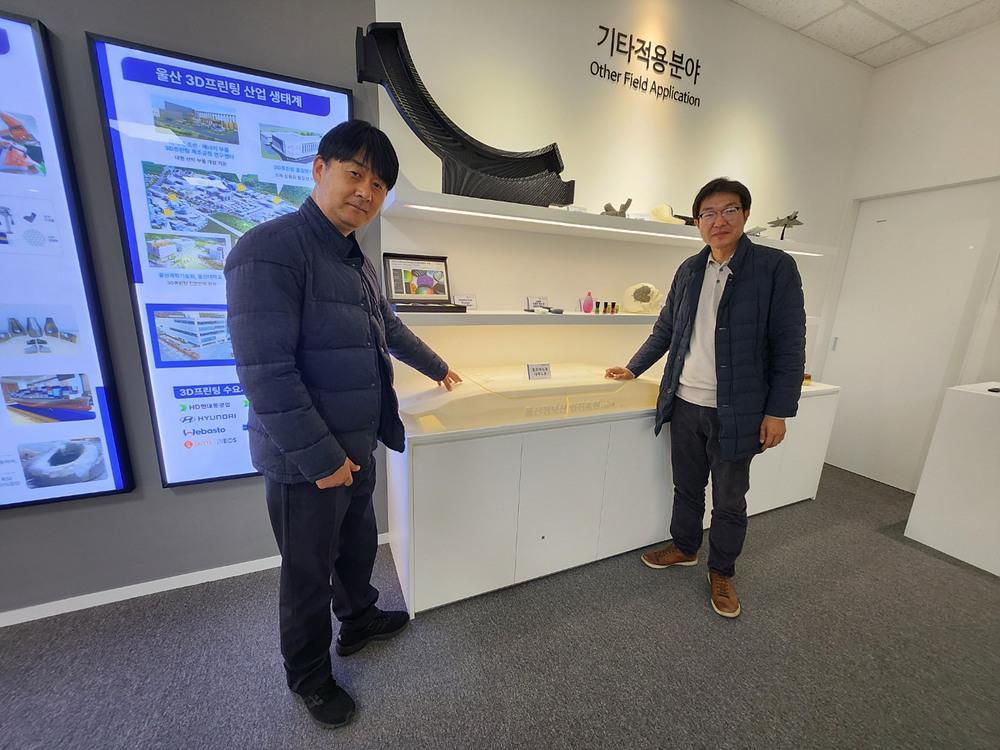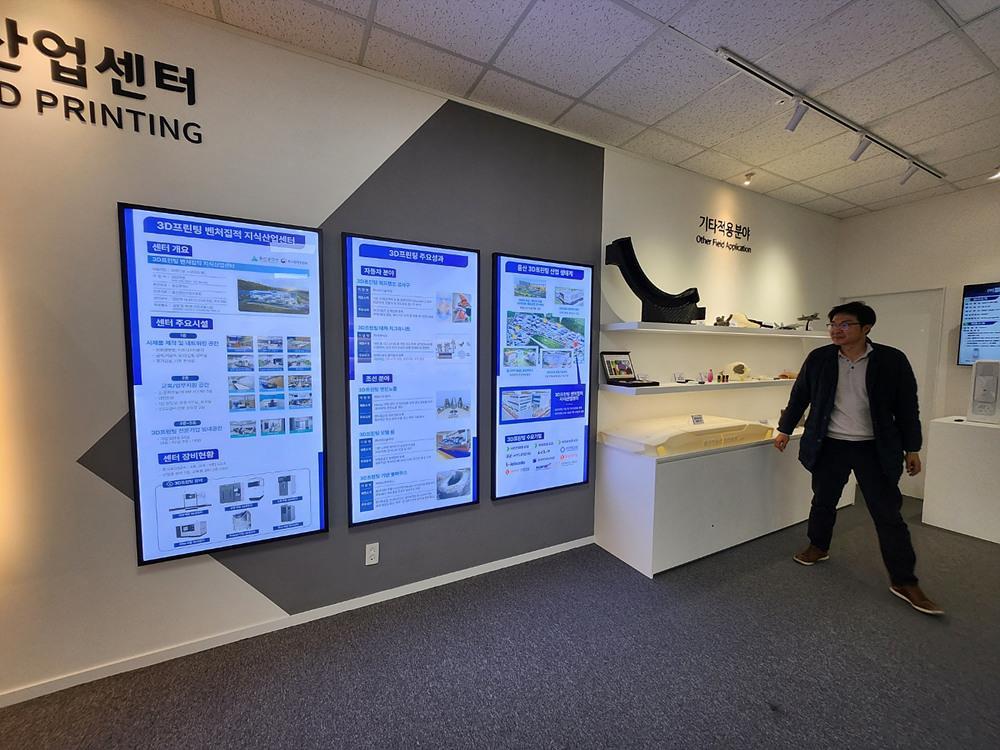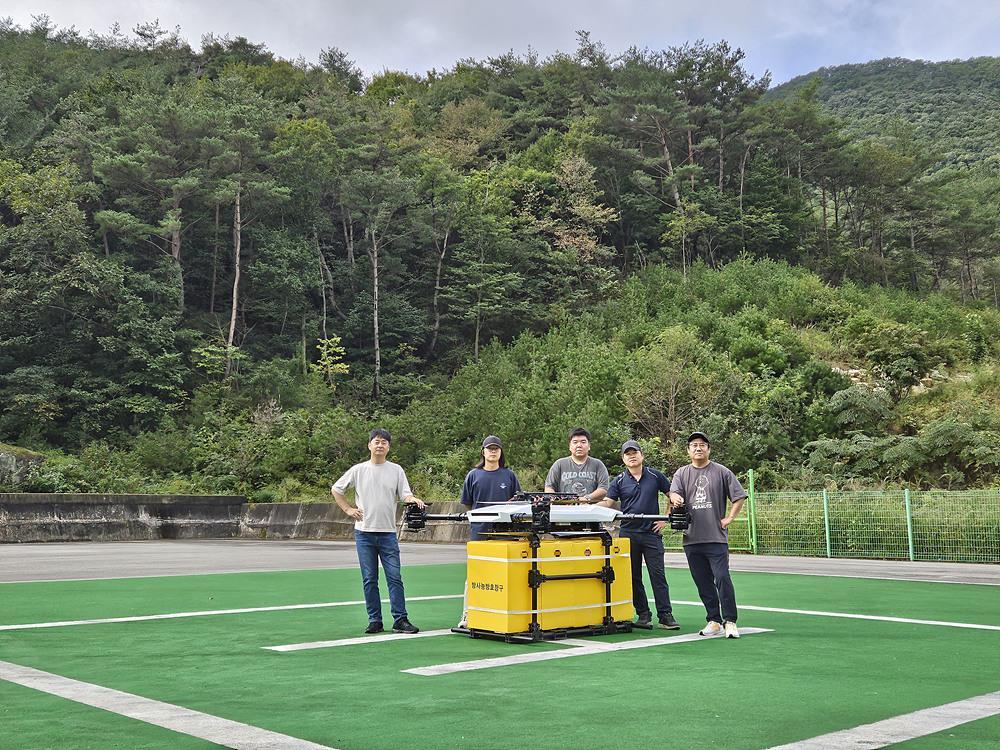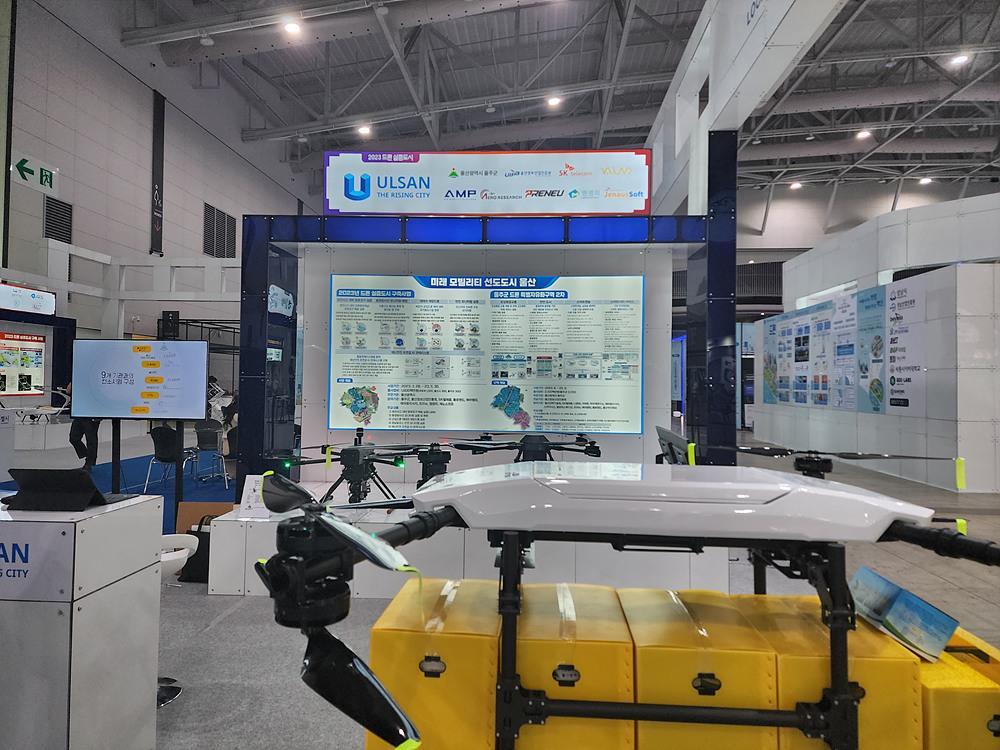[KIDP Ulsan] Vololand, Ulju County, and UIPA Join Forces to Build Ulju as a Global Standard City for Drones
[IT Dong-A x Ulsan City x Design-Driven Manufacturing Innovation Center]
The Korea Institute of Design Promotion has established the “Ulsan Design-Driven Manufacturing Innovation Center” at the University of Ulsan. The center supports promising small and medium-sized enterprises and startups in enhancing their design competitiveness. IT Dong-A introduces companies selected for the “Design-Driven Manufacturing Innovation Support Project” and supports their scale-up efforts.
Vololand, a drone technology startup rooted in Ulsan, is steadily growing. Ulsan Metropolitan City is conducting various drone demonstration projects in multiple areas, including Ulju County. Essential to these projects are drones and the technologies that enable their autonomous, unmanned operation 24 hours a day.
Vololand develops drone stations—devices that automatically replace and inspect the batteries of returning drones, analyze surrounding weather conditions to determine operational feasibility, and store and protect the drones. By installing these devices in remote mountainous regions, islands, or large-scale national infrastructure sites, drones can be operated autonomously and unmanned around the clock without human supervision.
Vololand is currently advancing its drone stations with support from domestic drone companies and government agencies. One result of these efforts is a drone capable of carrying heavy protective gear for accident response at Ulsan’s power plants. In collaboration with the Ulsan Design-Driven Manufacturing Innovation Center of the Korea Institute of Design Promotion, the company is also focused on refining the drone station’s exterior while enhancing its durability and performance. Based on these achievements, Vololand aims to contribute to the revitalization of Ulsan’s drone industry.
Scale-up Korea met with Kim Soo-kyung, an official in charge of emerging industries at the Department of New Growth Development in Ulju County, Ulsan Metropolitan City, who dreams of building the world’s leading drone city with Vololand. They also spoke with Dr. Kyung-seok Park, a senior AI industry researcher at the Software Promotion Headquarters of the Ulsan Information Industry Promotion Agency, who is generously sharing his knowledge and expertise to help realize that vision.
Vololand and Ulju County Office Collaborate on Joint R&D of Drone Technology as a Foundation for a Smart City
Kim Soo-kyung, Official for Emerging Industries, Department of New Growth Development, Ulju County, Ulsan Metropolitan City:
“Ulju County is designated as a drone special free zone. Our department is responsible for developing drone and smart city policies. When I joined this team three years ago, we envisioned integrating advanced drone technology into Ulju County to transform it into a world-class ‘drone standard city.’
A drone station automatically replaces drone batteries, stores data, assesses the flight environment, and determines whether to operate. In other words, drone stations are essential for a drone standard city. That’s why we went searching for a company that could build such a device—and that’s when we found Vololand. We immediately partnered with them to jointly develop and refine both the performance and appearance of the drone station. The Ulsan Design-Driven Manufacturing Innovation Center of the Korea Institute of Design Promotion also played a key role.
Thanks to Vololand, we secured a drone station and went on to establish an integrated control center. Our goal of installing drone stations throughout towns and villages in Ulju County to streamline administrative services and civil complaints is gradually becoming a reality. We also made a commitment to present this technology at CES.
Recently, we’ve achieved several milestones, including winning a contest hosted by the Ministry of SMEs and Startups and being selected for a new product development project with conditional purchase support. Together with Vololand, we are developing an apartment-style station that accommodates multiple drones. We are also working on a system to monitor national infrastructure facilities within Ulsan, including nuclear power plants, around the clock.
Ahn Seong-ho, CEO of Vololand: Thanks to Ulju County Office, we were able to seize various growth opportunities. For a company to evolve, it must develop products, receive feedback, and improve performance. Our collaboration with Ulju County provided a chance to achieve all of this. Officer Kim Soo-kyung was responsible for analyzing and introducing drone-related projects in Ulju County, while Vololand developed and advanced the necessary technology.
The official name of the apartment-style station is the “Smart Battery-Swapping Tower Multi-Station.” It stores and manages multiple drones, enabling them to take turns flying. It is a core technology that makes multiple and swarm drone operations possible.
Once this technology becomes a reality, it will play a major role in mountain rescue and wildfire monitoring. We are also working to improve the drone body structure and flight technology to suit the type of mission and terrain characteristics. These technologies will be showcased globally at CES 2025.
We want to further support the drone demonstration city project currently led by Ulju County Office. We’ve already completed development of a heavy-lift delivery drone capable of quickly transporting multiple sets of protective gear and equipment in the event of an accident at major national infrastructure sites in Ulsan. In collaboration with Ulju County, we are also steadily advancing technologies for swarm drones to prevent unauthorized drone intrusion and for jamming drones to counter potential terror threats.
Overcoming Challenges to Enhance the Essential Drone Station for a Drone Standard City
Kim Soo-kyung, Official for Emerging Industries, Department of New Growth Development, Ulju County:
Achieving collaboration and tangible results hasn’t been easy. First of all, there are very few companies in Korea that develop drone stations. And we didn’t just need a basic drone station—we needed a high-performance one. Thankfully, Vololand solved the issue of finding the right partner.
The next challenge was advancing the drone station’s technology. After installing the product, we ran repeated tests and received a huge amount of feedback and areas for improvement. Even though it was difficult, we shared the mindset of “let’s just try it together,” and we took on those challenges with Vololand. We’ve made gradual progress, though many difficulties still remain. With limited personnel, it’s hard to prove the effectiveness of the drone station and promote it widely. Still, I can feel that public perception of drones is slowly improving. I intend to keep trying until we succeed.
CEO Ahn Seong-ho: Even when there’s a demand for certain technologies in the field, it’s difficult to realize them at our current stage—especially when developing something entirely new like a drone station. It took over a year just to develop the prototype of the drone station, and we faced financial difficulties along the way. Research and development of drones alone is challenging enough, and on top of that, we had to integrate precision control and a command system.
We realized that Vololand couldn’t do it all alone, so we decided to seek help from partner companies. We invited experts in various fields of drone technology to help develop and refine the drone station.
Thanks to Ulju County Office, much of the burden was lifted. In addition to the drone station, we also developed a heavy-lift delivery drone capable of carrying up to 150 kg. Ulju County assisted not only with product development but also with acquiring certifications and applying for test flights. We plan to include these achievements in an upcoming report for the Drone Demonstration City project. After seeing our progress, other companies have shown interest in coming to Ulju County to join the initiative. As far as I know, twelve other drone companies, in addition to Vololand, have come to Ulju County to pursue their vision.
Installing Drones and Drone Stations Throughout Ulju County to Become a Leading Drone City
Kim Soo-kyung, Official for Emerging Industries, Department of New Growth Development, Ulju County:
Drone stations are essential for Ulju County to establish itself as a global drone standard city. Based on calculations, we estimate that about 120 drone stations will be needed to apply drones across all administrative functions throughout Ulju County. Once installed, within just five minutes, we’ll be able to monitor and respond to real-time conditions across the county from the integrated control center inside the county office.
While we still face challenges such as further technological advancement and public perception, I believe we can overcome them with Vololand. By leveraging national support programs, we will solidify Ulju County’s drone infrastructure and resolve technical issues one by one, ultimately establishing ourselves as a global drone standard city.
Of course, we also plan to bring in additional drone companies to strengthen these efforts. The development of the drone market is only possible through cooperation between companies and local governments. That’s why Ulju County Office has secured a large-scale budget for drone-related policies. It has also outlined research and development plans for drone technologies that will improve quality of life in areas such as agriculture, disaster response, and crime prevention.
Ulju County warmly invites drone companies that can help turn these plans into reality. When companies develop excellent products and services and achieve strong sales, the industry naturally thrives. Ulju County will support the growth of drone companies and adopt their outcomes, thereby creating a virtuous cycle that raises the overall level of the drone industry.
Ahn Seong-ho, CEO of Vololand:
Thanks to the strong support from Ulju County Office, Vololand was able to achieve today’s results. That’s why we want to collaborate with even more drone companies to scale up our success. However, this requires not only support from Ulju County but also assistance at the national level. Drones are products that integrate all kinds of cutting-edge information and communication technologies, including mechanics, electronics, telecommunications, security, and control systems. Therefore, the growth of the drone industry will naturally drive the advancement of ICT as a whole.
Unfortunately, most Korean drone companies currently rely on foreign-made components. That’s why I hope the government will actively support companies developing drone parts and foundational technologies. No industry can take root without securing its own components. I also hope the government will have faith in the drone industry’s growth potential and make proactive investments. It would be best to start by supporting sectors with high potential for real-world application.
When people talk about the future of drones, they often envision urban air mobility (UAM) or fully autonomous drones. While those visions may one day become reality, they are still a long way off. On the other hand, specialized delivery drones capable of transporting goods to island regions or large-scale facilities can already be developed today. It makes sense to first support and foster drone sectors with immediate practical potential, and then build upon those achievements to move toward the next phase.
Ulsan Information Industry Promotion Agency: “We Will Actively Support the Commercialization of 3D-Printed Drone Components”
CEO Ahn Seong-ho also named the Ulsan Information Industry Promotion Agency as another key partner in Vololand’s growth. The agency used 3D printing to produce parts for the heavy-lift drone developed by Vololand for emergency response at Ulsan’s power plants. This was not just ordinary 3D printing—it involved highly precise, durable production of large-volume components with zero margin for error. Dr. Park Kyung-seok, Senior Engineer in the AI Industry Division of the Software Promotion Headquarters at the agency, emphasized that they also support drone parts development and production, business assistance, and infrastructure building.
Dr. Park Kyung-seok: The Ulsan Information Industry Promotion Agency is an organization dedicated to fostering Ulsan’s future industries, particularly software. This includes content creation, 3D printing, drones, future mobility, and shipbuilding. My role focuses on supporting companies like Vololand that are developing drones and future mobility technologies.
Ulsan Metropolitan City has long been home to major industries such as automotive, shipbuilding, and petrochemicals. I believe this industrial foundation played a key role in Ulsan being designated as a drone special free zone. The research environment here is excellent. We have access to rural and urban areas, rivers, mountains, and the sea—all ideal conditions for drone research and testing. In fact, Ulsan is also a designated testbed for K-UAM R&D. Our goal is to create a mobility cluster in Ulsan that will nurture South Korea’s future mobility companies.
Ahn Seong-ho, CEO of Vololand: Thanks to the Ulsan Information Industry Promotion Agency, we were able to obtain key components for our heavy-lift delivery drone. In South Korea, there are only a handful of places capable of 3D-printing components of this size and precision. The agency supported not only drone manufacturing but also the development of takeoff and landing test sites, safety management, and unmanned technology. Currently, we are also conducting joint research on drone unmanned systems and automated parcel delivery technology.
Dr. Park Kyung-seok: I’m very interested in Vololand’s drone station. If this technology and its drones are deployed throughout Ulju County, any area in the region could be monitored within five minutes. The same goes for unmanned and automated operations. However, that requires advanced control systems to ensure operational stability. Improvements in charging efficiency and the precision of weather analysis are also essential. These are all areas we are researching together with Vololand.
We’re also working to identify drone services that suit the region’s characteristics. One example is the radiation detection drone currently being developed as part of the Ulsan Drone Demonstration City project. This technology could be deployed at nuclear power plants across the country—and even overseas. If we integrate robotics and artificial intelligence, its range of applications will expand even further. The day when the drones we once imagined become reality is not far off.
Ahn Seong-ho, CEO of Vololand: The most important thing in turning drones into reality is building a solid market foundation and actively supporting drone component manufacturers and practical drone services. A strong foundation is essential to create tailored service drones. Vololand’s role is clear—we aim to lay the groundwork for 24-hour unmanned drone operations through our drone stations, and to collaborate with other companies to help advance South Korea’s drone ecosystem.
Dr. Park Kyung-seok: The Ulsan Information Industry Promotion Agency will be part of that effort as well. With drone stations in place, it will be possible to operate drones throughout Ulsan. The value of using drones to work in areas that are hard to reach by vehicle or person is immense. It eliminates the risk of human injury and enables operations to run 24/7.
We will provide every possible form of support so that drone companies can focus on research and development without concern, while also striving to uncover new business opportunities. By inviting drone companies, we aim to help them realize and commercialize their technologies. Next, we hope to connect them with Ulsan’s long-established component manufacturing companies to create a drone and UAM cluster. Through this, we seek to achieve four major goals: fostering emerging industries and technology development, enabling mutual growth between local communities and businesses, developing new technologies that protect human safety, and creating jobs. All of this will contribute to the revitalization of Ulsan Metropolitan City.
Reporter Cha Joo-kyung, IT Dong-A (racingcar@itdonga.com)

